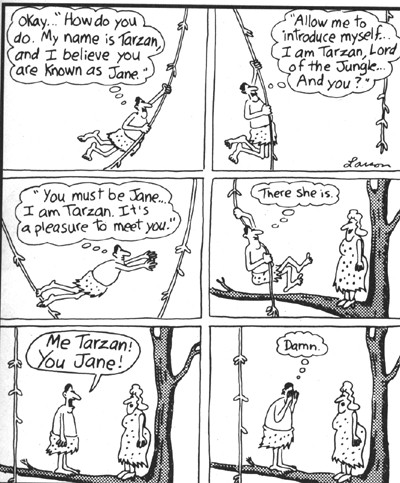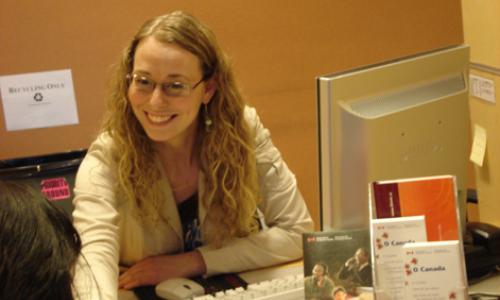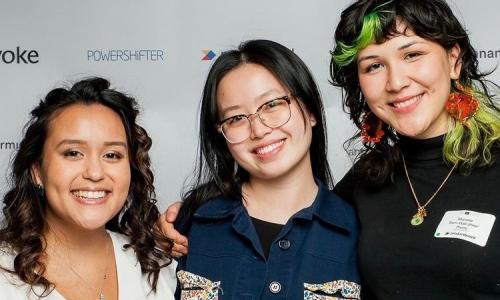
I don’t much like talking to strangers.
Some people are better at it than others, but it’s something I’ve never really been good at or wanted to do much of. Come to think of it, I’m not even that great at talking to the people I know – such is the fate of us introverted internal processors. I have great conversations in my head with myself, but when it comes to vocalizing my brilliant, eloquent thoughts to other people, I often end up garbling the words into something near unintelligible.

I’ll use just about any excuse to get a Far Side cartoon in here and there. I can relate to Tarzan, though – he had such great intentions, but flustered in the pivotal moment. I can also relate to the many students I talk to who are intimidated – to say the least – at the prospect of talking to their professors. Heck, I was one of those students at one point in time.
There are lots of great reasons to develop relationships with those strange, powerful, often eccentric beings with letters attached to their names. I won’t go into them at length here, but a few of the more obvious ones include mentoring, insight and help with course material, access to an academic and professional network, and a potentially excellent letter of recommendation down the road.
Why is it so Hard to Talk to Professors?
The main reason it can be intimidating to talk to professors lies in the uneven power dynamics between professor and student. Despite recent movement towards change, the power balance within post-secondary education is incredibly concentrated and hierarchical. The students do what the professors say, the professors do what their departments say, the departments/deans do what their faculties say, and the faculties do what the board of governors, president, and other administrative bodies say.
But the professor is the one standing at the front of the class delivering the lecture, and by embodying that role, they automatically assume a significant amount of power in the eyes of most students.
Having power isn’t a bad or evil thing in an of itself. Granted, there are some professors out there who are downright unpleasant and seem to be sustained by the tears of helpless undergraduates. Thankfully, however, the majority of professors are actually quite approachable, everyday people. Being a professor just happens to be their job. The better teaching professors will even work actively to become more approachable to their students and to responsibly distribute some of that power among their class, by giving larger degrees of autonomy on assignments, for example.
The hardest thing is starting. Dropping in on that first office hour. Walking up to ask that first question after class. Once students cross the line and begin to develop relationships with their professors, they often begin to see that the power that professor had wasn’t really as much as they thought it was – they’re human, after all.
What’s the Best Way to Approach my Professor?
Genuinely. Having a scripted speech isn’t going to win you any charisma points. At the same time, you don’t want to pull a Tarzan and completely blank out at the last second, so it’s a bit of a delicate balance between preparation and spontaneity. Try starting with “hello Dr. ____, my name is ____. I was wondering about ____.”
How Should I Refer to Them?
Take your clues from the professor. If they ask students to refer to them by first name, they’re serious – use it. If they haven’t told you or you’re not sure, err on the side of convention and call them by their last name with doctor or professor thrown in. I only ever had one professor insist that students call him Dr. ____, and he made that known in the first class. I dropped that course (and his ego) the next day.
What Should I Talk About?
Well, what are you hoping to accomplish? Are you looking to gain some research or volunteer experience? Ask if there’s any way you can help them out with something they or a colleague are researching. Are you looking to get a bit of clarity about course material or to bounce some ideas around regarding that paper you’re writing? Drop in an office hour and have a conversation about it. Are you more interested in potential career opportunities within their field? Even though professors work in academia, many will have additional jobs and all of them will have a network of people within that field that you could potentially access if you play your cards right.
Despite (or perhaps because of) the fact that these are people that determine to a large extent your success at university, it’s important to think of professors as real people that you can talk to, and develop a positive relationship with. As long as you do better than Tarzan did with Jane, you’ve got nothing to worry about.
















